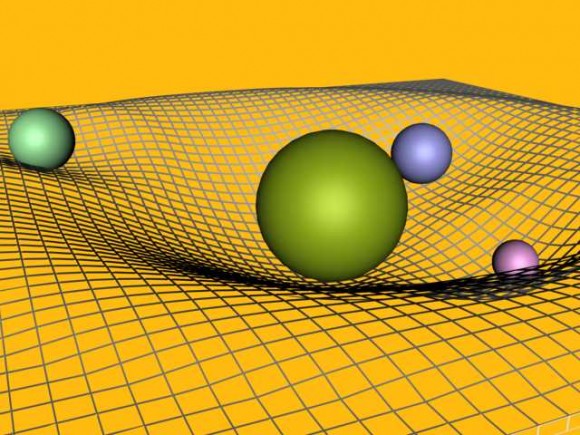Editor’s note: This post has been updated and broken links removed. Please see our policy on broken hyperlinks for more.
From its slow crawl in distant space to its subjective and fleeting nature here on Earth, time is one of those mysterious forces that we can all vouch for because we directly experience it. But how exactly does it work?
I’m going to be honest: It’s late and I should have been asleep half an hour ago, but inspiration seems to have a bizarre relationship with time so I wind up having some of my best ideas when practicality says I should sleep. In light of this, I want to take a moment to talk about problems with time. I don’t mean problems with scheduling (although one could argue that’s really at the heart of my personal temporal problems). I’m talking about discrepancies in the way we perceive, imagine and interact with that mysterious fourth dimension, time.
Time is Not Constant
To begin, let us get a clear picture of time. (Spoiler alert: This is the problem). For most people it is convenient, even easy to imagine time as a river flowing seamlessly from the past to the future, carrying the world and human impulse along with it. That was Sir Isaac Newton’s viewpoint, who proposed that time passes uniformly in one direction, regardless of the presence or absence of physical matter. Let’s muddy Newton’s waters a little.
Newton’s theory on time emerged with his concept of absolute and relevant space. Regarding time, he perceived two elements: The objective or absolute time, which exists and flows from Point A (the past) to Point B (the future); and relative time, which describes the actions and events we perceive that allows us to develop the concept of time. As I mentioned a moment ago, Newton believed that time was unaffected by matter, but that we could see changes in matter because of the passage of time. Thus, he held that change was a product of absolute time which — coupled with absolute space — forms the two most permanent yet separate elements of the universe.
While his theories seemed sound in the seventeenth century, later scientists would conduct tests on space and time that would garner results that contradicted Newton’s theories of absolute time. To begin with, they learned that time is affected by the presence or absence of matter (and energy). When we broaden our focus to a cosmological view, it becomes easier to see how time doesn’t really follow the rules of Newtonian physics.
Dilating the Eye of Time
Let’s jump forward a couple of centuries to take a look at Albert Einstein’s theory of general relativity. Einstein introduced the concept of space-time (or spacetime), wherein time and space are bound together in a 4-Dimensional map. If you’ve ever seen a map of the solar system lain out on a grid pattern where the lines curve around planets like the one illustrated below, you were looking at a rudimentary map of space-time.

When subjected to special effects like extreme (and sometimes not-so extreme) gravity pockets (like black holes or planets and stars), light and extreme distances, time starts to behave differently than it does on Earth. For starters, gravity can bend time. The weird thing about this is that time seems to be the same where it’s being bent and where it isn’t, but is subjectively different when its effects on these two different areas are compared. This distortion is called “Time dilation.”
I’m going to use Canadian television from the turn of the century to explain this.
In the pilot episode of Andromeda, Captain Dillon Hunt is fighting a mutiny on the bridge when his ship, the Andromeda, comes really close to a black hole. They get so close that time is (subjectively) slowed down by the black hole’s gravity. The crew members don’t miss a beat. For them, everything seems to be normal. Outside the black hole, the rest of the universe carries on as usual. During a brief gun fight on the Andromeda’s bridge, three centuries pass for everyone not on the ship. Along come some pirates, they pull Andromeda out of the gravity well (with Dillon Hunt alive and just firing the last shot to quell the five minute-long uprising) and we have a three hundred year old space captain who doesn’t feel a day over forty-two.
On the flip side, objects also seem to age less (relative to their subjective environments) the faster they travel. Einstein’s classic example here is the twin experiment wherein one of the twins leaves Earth on a space ship and ages slower than his planetary brother. In other words, moving really, really, really fast is kind of like taking a one-way time travel trip into the future.
There are also studies that indicate time is slowing down as the universe expands. These studies suggest that at some point, time will stop changing and the universe will exist in something of a “fixed” state.
Quantum Controversy
As weird as it is, general relativity works really well. So well it is considered the standard model of physics and is used to predict outcomes of various experiments in the universe. Unfortunately, it has its own set of problems. Most of them are outside the scope of this piece, since they don’t directly deal with time. What does concern us is general relativity’s inability to play well with other scientific theories. Specifically, GR and quantum physics have gotten into numerous altercations on the playground.
Quantum theory works with matter on an atomic level. It gets a little confusing because it not only deals with the way the particles of the universe work, but also they ways in which they could work. There are a lot of experiments where they conclude particles perform function A or B, or both, or none, all at the same time. Yet the problem we face is that within quantum mechanics, time does not seem to exist at all.
I Can See Your Physics
According to quantum physics, time does not seem to affect anything in the universe; and yet we can clearly see that it does. Seeing is extremely important in the world of quantum mechanics because experiments have different results if the particles are directly viewed vice ignored.
A recent study determined that time is not really a factor of quantum mechanics but a byproduct of particles therein. In this experiment, scientists created a miniature universe (I know what you’re thinking and I want that job, too), which they measured. They directly observed the particles and found that time existed and changed the particles. They repeated the experiment without observing the particles and found the particles had not changed; thus, time does not exist.
The process of directly observing the particles working causes a condition known as quantum entanglement. When quantum entanglement occurs, a whole lot of actions and possible actions pass between particles. When this happens, each particle will continue to give off the same reading; however measuring the relationship between the entangled particles will tell us more about each particle than separate measurements will; thus time evolves as a side effect of quantum entanglement.
Quantum Gravity
Einstein’s relativity theory is still important because it helps us understand things like gravity and warp drive engines. Quantum physics is important because it helps unlock deeper mysteries about how everything in the universe operates. The problem with both of these is making them correlate; because relativity suggests gravity and time exist and quantum physics largely say they don’t. The missing link here is referred to as “Quantum Gravity” and it’s pretty much the Holy Grail of current atomic physics research. (On a side note, the team that did the quantum entanglement experiment I mentioned earlier suspects gravity is also the result of quantum entanglement, but apparently proving that is a lot more complicated than creating a mini-universe and watching or ignoring it. Mind boggling, yes? Yes!).
So there you have it. Problems with the way we track time all the way from Earth to the cosmos and back to the atomic level. All of this and I still find myself having problems with the subjective time frame I’m caught up in, as it is now daylight and they’ll be expecting me in the office soon–and functioning, no less!
Undoubtedly some entanglement with high-caffeine tea will be in my near subjective future.
Sources
- Rynasiewicz, Robert. Newton’s View on Space, Time, and Motion. Stanford Encyclopedia of Philosophy.
- Is Time Disappearing From the Universe? From Quarks to Quasars.
- Cartwright, Jon. Relativity Comes Down to Earth. Nature.com.
- Einstein, Albert. What Is The Theory Of Relativity? 11/28/1919. Translated by Sonja Bargmann, 1952.

Confusing!